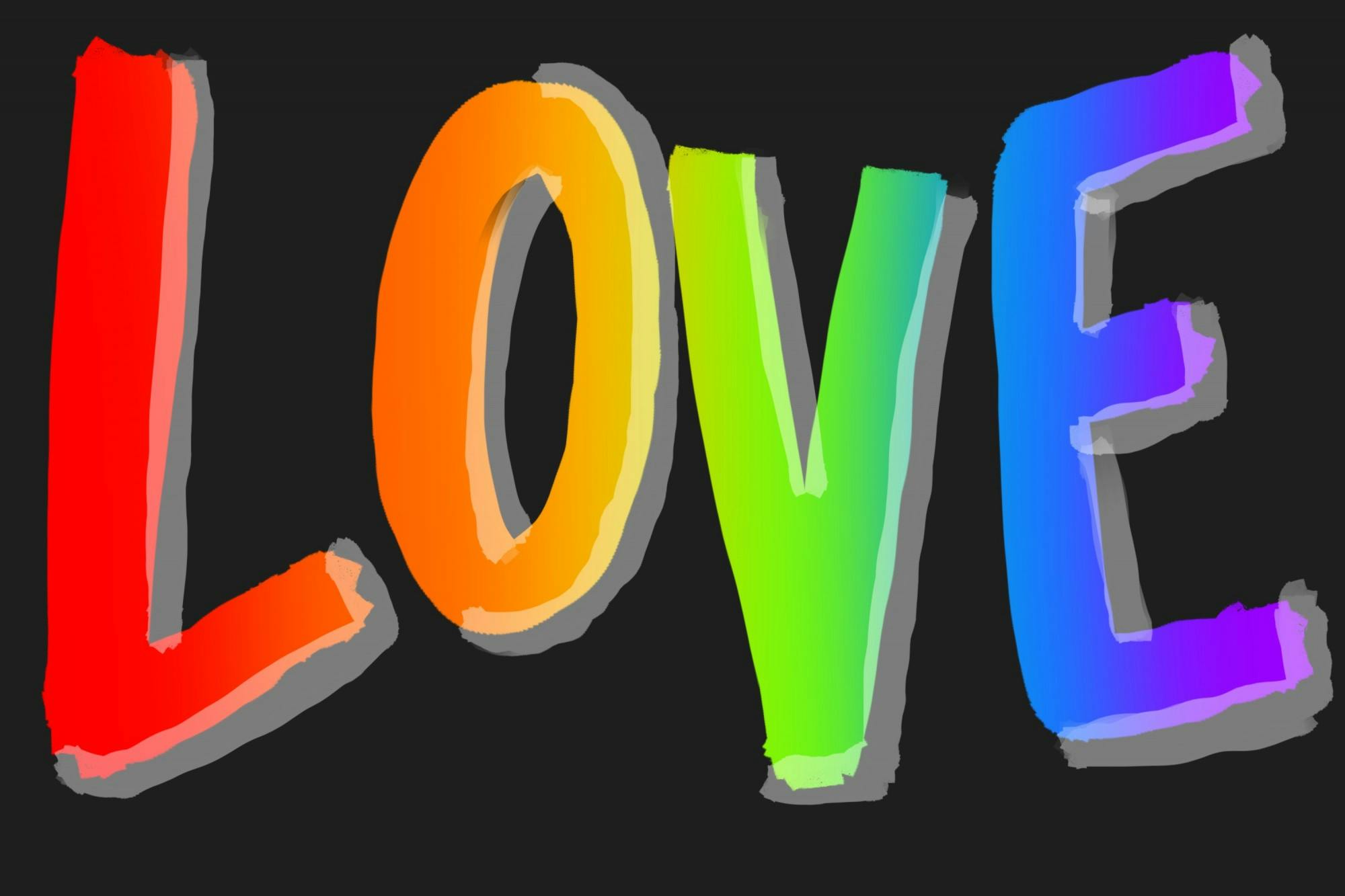It’s no secret that queer students aren’t exactly a majority here at Dartmouth, and the icy climes of Hanover aren’t exactly a hotspot for the gay community. With such a small group compared to the College population at large, it can be tough for these students to find community — and to form the relationships that are significantly easier for their straight counterparts.
Like many of these students upon their first arrival at Dartmouth, Kate Clark ’25 said she struggled to find a queer community on campus.
“To be fair, it was during Orientation, but I feel like there weren’t a lot of openly queer people that I came across,” Clark said. “And there was not any sort of active representation of people during Trips or just during the conversations we were having.”
This transition to campus can be especially jarring for students coming to campus from places with thriving queer communities. Ülgen Yildirim ’24, who is from Istanbul, Turkey, expressed how difficult the transition from a big city to Hanover has been.
“How I represent my identity as a queer person and how I engage in queer relationships was very different back home than here,” Yildirim said. “Back home in a big city, dating apps are super common and at Dartmouth dating apps are stigmatized — not many people use them, especially if you’re queer. For non-heterosexual relationships there’s basically no one on the app.”
Antônio Jorge Medeiros Batista Silva ’25 and Luka Faccini ’25, who were celebrating their one-year anniversary on the day they were interviewed, expressed a similar sentiment coming from their home country of Brazil.
“We come from quite big cities in Brazil, and I also grew up in a family that was very accepting and I never had to worry about these things,” Silva said.
Forging queer relationships isn’t an easy process — there’s no unified way to find people, and it’s often a luck of the draw based on an individual’s experiences.
“It’s difficult because a lot of the going-out spaces are male-dominated and very heterosexual,” Yildirim said. “I don’t think I’ve been in any queer spaces outside of Panarchy or Tabard, versus in a big city you can find a lot of these spaces where you know that you’re going to find queer people.”
Clark credited her original exposure to the queer community at Dartmouth to different groups she took part in during her freshman year.
“I got really lucky in terms of my Trip leaders’ friends and then being on club soccer…that I got introduced to a lot of queer women on campus pretty early on,” Clark said.
Clark even described how this led her into a relationship that lasted from fall 2021 until last term. While she described her former relationship as strong, she noted that it limited her exposure to different groups.
“For the most part, I’ve occupied a very specific queer space or group on campus, and now it’s starting to open up as I’m no longer in that relationship,” Clark said. “Being in a relationship made it a lot easier for me to be introduced to this community without having to navigate that.”
Silva and Faccini originally met through the Brazilian community on campus, which they described as very tight-knit, but their relationship was the result of a Marriage Pact match last year.
“I did it as a joke just to meet people, but it turned out that Antônio was my Marriage Pact,” Faccini said. “Even before, Antônio was always my best friend. Some nights, I worked until 2 a.m. at the snack bar and he would come just to give me company.”
Even for those in relationships or with an established community, the performance of a queer identity on campus can be a bit difficult.
“My ex told me that right before I met her, she got called out…for sitting next to another visibly gay girl, and another girl was like, ‘Please stop doing that, that’s gross,’” Clark said. “Her having experienced that explicitly did rest on my mind, even though I feel like I surround myself with people where that’s never really an issue.”
Yildirim added that in a going-out context, the performance of queerness can sometimes feel uncomfortable.
“Sometimes when I go to certain spaces, I feel the need to be more feminine and appeal more to the male gaze,” Yildirim said. “I sometimes feel uncomfortable if I’m not what the fraternity brothers think of as ‘women’ and I feel that that would be heightened with things like PDA with another non-male partner, for example.”
Faccini even shared an experience in which he was explicitly called a homophobic slur on campus.
“It’s very interesting, because I used to joke to Antônio, when is the first time [something is going to happen]?” Faccini said. “I wasn’t very surprised about it happening but it’s weird that the first time it happened to me, it happened here.”
Faccini added that for the most part, he is comfortable with small displays of his relationship.
“I feel very comfortable on a daily basis to walk holding hands,” he said. “Nothing too bad will happen, but I do wonder what the College is doing to prevent these things from happening.”
For some, like Silva and Faccini, the performance of a queer relationship is an important step on a campus where there aren’t many queer couples.
“I think we also do it sometimes as a statement. We need to be seen sometimes,” Silva said. “We hold some privilege as men — I’ve never seen queer women of color holding hands on campus. I think it’s important we take that step, and hold hands and create that space for others.”




